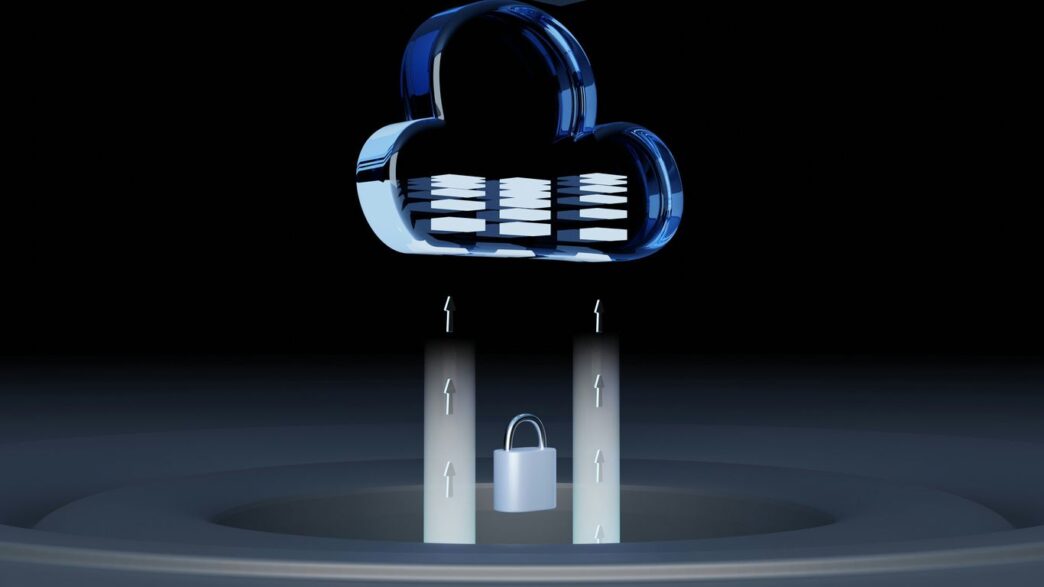So, you’re looking for a place to keep your files safe online. Proton Drive is one of those services that pops up when privacy is the main thing you care about. It’s made by the same folks who do Proton Mail and Proton VPN, so you know they’re serious about keeping things locked down. But is it the best fit for everyone? Let’s break down what Proton Drive actually offers, how much it costs, and how it stacks up against the competition. We’ll cover everything from its super-strong encryption to its pricing plans and how it works on your computer and phone.
Key Takeaways
- Proton Drive uses end-to-end encryption, meaning only you can access your files. Not even Proton can see them.
- Being based in Switzerland means Proton Drive benefits from strong privacy laws, adding another layer of protection.
- While it offers a free tier, Proton Drive’s paid plans are generally more expensive per gigabyte compared to services like Google Drive or OneDrive.
- Upload speeds can be slower because files are encrypted on your device before being sent, which depends heavily on your computer’s processor.
- File sharing is available through public links, with options for passwords and expiration dates, but these features are only accessible via the web version, not the desktop apps.
Understanding Proton Drive’s Security and Privacy
When you’re thinking about putting your files in the cloud, security and privacy are probably at the top of your mind. Proton Drive really leans into this, making it a big part of their whole deal. They use end-to-end encryption, which is a fancy way of saying that only you and the people you choose can actually read your files. Even Proton itself can’t get into them. This is a pretty big deal, especially when you compare it to some other services where the company might have a way to access your data.
End-to-End Encryption for Ultimate Protection
So, what does end-to-end encryption really mean for you? It means that when you upload a file, it gets scrambled on your device before it even heads out to Proton’s servers. Then, it stays scrambled until someone with the right key – which is you – unscrambles it on their device. This process is designed to keep your information safe from prying eyes, whether that’s hackers or even the cloud provider itself. It’s a strong defense against cybercrime, which is always a concern when dealing with digital information. This level of protection is what sets Proton Drive apart for many users.
Swiss Jurisdiction and Legal Safeguards
Beyond the encryption, where a company is based matters a lot for privacy. Proton Drive is headquartered in Switzerland. This is important because Switzerland has some of the strictest privacy laws in the world. Being under Swiss jurisdiction means that law enforcement agencies have to jump through some serious legal hoops to even request access to user data. They can’t just ask for it; there are court orders and specific legal processes involved. This adds another layer of protection that you don’t always find with cloud storage providers based in other countries. It’s good to know your data is protected by robust privacy laws.
Anonymous Payment Options
Proton Drive also offers a few ways to pay for their services that don’t require you to link your identity directly. While you can use traditional methods like credit cards or bank transfers, they also accept payments via Bitcoin. For those who are really serious about anonymity, they even allow cash payments by mail. Sending cash might seem old-school, but it’s a way to sign up for a service without leaving a digital paper trail directly tied to your bank account or credit card. This focus on privacy extends all the way to how you pay for the service, which is pretty thorough.
Proton Drive Pricing and Storage Plans
When you’re looking at cloud storage, the cost is always a big question. Proton Drive has a few different ways you can pay for space, depending on what you need. They really lean into their privacy focus, which is great, but it does mean the price might be a bit higher than some other services out there.
Free Tier and Basic Storage
Like many cloud storage options, Proton Drive offers a free plan to get you started. With the free tier, you get 5GB of storage space. This is pretty standard, putting it in the same ballpark as services like Microsoft OneDrive and IDrive, which also offer 5GB for free. Google Drive gives you a bit more at 15GB, but that space is shared across your Google account, including Gmail and Google Photos. So, if you just need a little bit of space for important files and don’t plan on storing a ton of data, the free tier is a decent starting point.
Proton Drive Plus and Unlimited Options
If 5GB isn’t enough, you’ll need to look at their paid plans. The Proton Drive Plus plan is a popular choice, giving you 200GB of storage for $4.99 per month, or you can save a bit by paying $47.88 for the year. For those who need even more space and want access to Proton’s other services, there’s the Proton Unlimited plan. This plan costs $118.88 per year (or $12.99 monthly) and bumps your storage up to 500GB. This package also bundles in Proton Mail, Proton Calendar, Proton VPN, and Proton Pass, which is a nice perk if you’re invested in the Proton ecosystem. It’s worth noting that the storage in the Unlimited plan is shared across your Proton Mail account too.
Family Plans for Shared Storage
Proton Drive also offers a Family plan, which is great if you need to share storage with your household. For $287.88 per year (or $29.99 monthly), you get a massive 3TB of shared storage for up to five people. This works out to be a lot more space for each person compared to the individual plans, and it’s a good way to manage files for the whole family. When comparing prices, it’s important to look at the cost per gigabyte. Services like IDrive offer a lot more storage for a lower annual cost, and Google One plans are also quite competitive, especially if you’re already using Google services. For example, you can get 2TB on Google One for $99.99 per year. So, while Proton Drive offers strong security, you’re paying a premium for that peace of mind. If you’re looking for ways to back up your own data, you might find guides on how to back up your PS4’s hard drive helpful, though that’s a different kind of backup entirely [f7fb].
Here’s a quick look at the individual paid plans:
| Plan Name | Storage | Monthly Price | Annual Price | Includes |
|---|---|---|---|---|
| Proton Drive Plus | 200GB | $4.99 | $47.88 | 200GB cloud storage |
| Proton Unlimited | 500GB | $12.99 | $118.88 | 500GB storage, Mail, Calendar, VPN, Pass |
| Proton Family | 3TB | $29.99 | $287.88 | 3TB shared storage for up to 5 people, Mail, Calendar, VPN, Pass |
Remember, the biggest selling point for Proton Drive is its security and privacy features, backed by Swiss law. If that’s your top priority, the cost might be well worth it.
Performance and Speed Considerations

When you’re thinking about cloud storage, speed is definitely something to consider. Proton Drive encrypts your files right on your computer before they even get sent out. This is great for security, but it does mean that the power of your computer’s processor plays a big role in how fast things upload. I noticed this myself; when I used an older computer, uploading even a gigabyte took quite a bit longer than it does now with my newer machine. It’s a trade-off for that extra layer of protection.
Several things can affect how quickly your files move to and from Proton Drive. Your own internet connection speed is a major factor, of course. If you have a slower upload speed, everything will naturally take longer. Also, where you are located in relation to Proton’s servers can make a difference. Since Proton’s servers are in Europe and I’m on the West Coast of the US, there’s a bit of distance involved, which can add to transfer times. It’s not like using a service with data centers all over the globe.
Here’s a quick look at how Proton Drive stacks up against some other popular options, keeping in mind that direct comparisons can be tricky because of all the variables:
- Proton Drive: Prioritizes local encryption, so upload speed is tied to your CPU. Good for privacy, but can be slower.
- Google Drive/OneDrive: Generally offer faster speeds as they often don’t encrypt locally to the same extent. They have vast server networks, which helps.
- Dropbox: Known for decent speeds and a good sync engine, though local encryption isn’t its main selling point.
It’s worth remembering that if you’re uploading massive files or a huge number of small files, the process will always take more time. For everyday use, though, the speeds are usually perfectly fine. If you’re really pushing the limits with huge data transfers, you might want to check out services that focus more on raw speed, but for most users, Proton Drive’s security focus is a worthwhile trade-off. Keeping your computer running smoothly also helps; you can try cleaning up junk files or disabling unnecessary startup programs to maintain computer performance.
Platform Availability and Accessibility
Desktop and Mobile Application Support
Proton Drive makes it pretty easy to get to your files from most of your devices. They have apps for both Windows and macOS, so if you’re a desktop user, you’re pretty well covered. It’s not just about computers, though. They also have mobile apps for iOS and Android. This means you can check your files, upload new ones, or share things right from your phone or tablet. The mobile app, in particular, is often praised for being straightforward and simple to use. It’s nice not having to dig through complicated menus just to find what you need when you’re on the go.
Web Browser Access and Recommendations
Of course, you don’t always need an app. Proton Drive works through your web browser too. Just log in to your account from any computer with internet access, and you can manage your files. This is super handy if you’re using a computer that isn’t yours, like at a library or a friend’s place. You don’t have to install anything. The web interface is pretty clean, and you can do most of the same things you can do with the desktop apps, like uploading, downloading, and organizing your files. It’s a solid option for quick access.
Absence of Linux Client
Now, here’s a bit of a snag for some folks. If you’re a Linux user, you might be a little disappointed. Proton Drive doesn’t have a dedicated desktop client for Linux. This means you can’t install a special program on your Linux machine that syncs files automatically in the background like you can on Windows or Mac. Your main option for accessing Proton Drive on Linux is through the web browser. While this works, it’s not quite the same as having a native app. You miss out on that background syncing and the deeper integration that a desktop client usually provides. It’s something to consider if Linux is your primary operating system.
File Sharing Capabilities
Proton Drive lets you share files, but it’s a bit different from some other services out there. You have a couple of main ways to do this. You can share directly with other Proton users, or you can create a public link that anyone can access.
When you share a folder with another Proton user, you can actually set their permissions. This means you can decide if they can just view the files or if they can also edit them. It’s pretty neat for collaborating on projects, though it’s not quite as open as, say, Google Drive or Dropbox where you can edit documents together in real-time. Proton Drive is more about privacy, so it keeps things a bit more controlled, which makes sense given its focus.
Creating a public link is straightforward. You right-click a file or folder in the web version and choose the share option. From there, you can generate a link. This link can be protected with a password and set to expire after a certain time, adding an extra layer of security. This is really handy if you’re sending sensitive information and want to limit who sees it and for how long.
It’s worth noting that some of the more advanced sharing features, like setting those expiration dates or passwords, are primarily managed through the web interface. So, if you’re on the go and need to tweak sharing settings, you’ll likely want to use a web browser rather than the desktop or mobile app for those specific actions.
Key Advantages of Proton Drive
So, why pick Proton Drive over the other cloud storage options out there? Well, it really comes down to a few standout points that make it a solid choice, especially if privacy is your main concern.
Comprehensive File Encryption
Proton Drive takes security seriously. Everything you put into Proton Drive gets encrypted right on your device before it even heads out to their servers. This means that Proton itself can’t peek at your files. It’s like putting your documents in a locked box before mailing it – only the intended recipient, with the key, can open it. This end-to-end encryption is a big deal for keeping your personal stuff private. You can read more about their encryption methods on the Proton Drive website.
Robust Privacy Laws in Switzerland
Beyond the tech, Proton Drive benefits from where the company is based: Switzerland. Swiss privacy laws are pretty strict, offering a good layer of legal protection for your data. This means that getting access to your files, even for law enforcement, has to go through proper legal channels. It’s a nice bit of reassurance knowing your data is protected by strong national regulations.
User-Friendly Mobile App Features
While the desktop sharing features are a bit limited, the mobile app is quite slick. You can easily manage your files, upload new ones, and even set up automatic photo backups, similar to what Google Photos or iCloud offer. Plus, you can add an extra layer of security by locking the app itself with a PIN or your phone’s fingerprint or face recognition. It makes accessing your cloud files on the go feel both convenient and secure.
Potential Drawbacks of Proton Drive
While Proton Drive really shines when it comes to security and privacy, it’s not without its downsides. For starters, you’re going to pay a bit more for storage compared to some of the big players out there. It feels like you’re paying a premium for that extra peace of mind, which makes sense, but it’s definitely something to consider if you’re on a tight budget.
Another thing I noticed is that upload speeds can be a bit sluggish. This is largely due to the end-to-end encryption happening right on your device before anything gets sent out. While that’s fantastic for security, it does mean your computer’s processing power plays a big role. My older laptop really struggled, making uploads take ages. If you have a newer, faster computer, you’ll likely have a better experience. It’s a trade-off for that robust security, but it’s noticeable.
When it comes to sharing files, Proton Drive is a bit more limited, especially if you’re trying to do it from the desktop apps. You really need to hop onto the web version to get access to features like creating public links, setting passwords, or adding expiration dates. This can be a hassle if you’re used to sharing directly from your desktop or mobile app. It’s not a dealbreaker, but it’s an extra step that other services don’t always require. For instance, managing shared links is much easier through the web interface, which is a bit of a pain if you’re not always online.
Here’s a quick look at how it stacks up:
- Cost: Generally higher per gigabyte than competitors like Google Drive or OneDrive.
- Speed: Local encryption can slow down upload times, especially on older hardware.
- Sharing: Key sharing features are primarily available through the web interface, not desktop applications.
It’s worth checking out their pricing tiers to see if the cost aligns with your needs, especially if you’re comparing it to services that might offer more storage for less money. You can find more details on their storage plans to help make that decision.
So, Is Proton Drive Right For You?
Ultimately, Proton Drive stands out if your main worry is keeping your files private and secure. It’s built with strong encryption and backed by Swiss privacy laws, which is a big deal. You won’t find many services that lock down your data quite like this. However, this level of security does come with a higher price tag compared to other options, and upload speeds might not be the fastest. If you’re someone who prioritizes peace of mind over the lowest cost or the absolute quickest file transfers, Proton Drive is definitely worth a look. But if budget is your biggest concern, or you need a wider range of features for collaboration, you might want to check out alternatives like Microsoft OneDrive or Google Drive.
Frequently Asked Questions
What makes Proton Drive’s security special?
Proton Drive uses something called end-to-end encryption. This means your files are scrambled on your device before they even go to Proton Drive’s servers. Only you have the key to unscramble them, so not even Proton Drive itself can see what’s inside. Plus, Proton Drive is based in Switzerland, which has strong privacy laws that protect your data.
How much does Proton Drive cost?
Proton Drive offers a free plan with 5GB of storage, which is pretty standard. If you need more space, the ‘Proton Drive Plus’ plan gives you 200GB for about $4.99 per month. They also have ‘Proton Unlimited’ which includes other Proton services like Mail and VPN with more storage, and ‘Proton Family’ for sharing with up to five people with a large amount of storage.
Is Proton Drive faster or slower than other cloud storage?
Because Proton Drive encrypts your files on your computer before uploading, it can sometimes be a bit slower than services that don’t encrypt as much. Think of it like packing a suitcase very carefully before you send it – it takes a little extra time. Your internet speed and your computer’s power also play a big role in how fast uploads are.
Can I use Proton Drive on any device?
You can use Proton Drive on your computer (Windows and Mac), and there are mobile apps for iPhones and Android phones. It also works through your web browser on any computer. However, there isn’t a special app made for Linux computers right now.
How do I share files with others using Proton Drive?
You can create special links to share your files. You can even make these links extra secure by adding a password or setting them to expire after a certain time. Just remember, you need to use the Proton Drive website in your web browser to set up these sharing options; they aren’t available in the desktop apps.
Why is Proton Drive more expensive than some other services?
Proton Drive focuses heavily on privacy and security, using strong encryption and being based in Switzerland. This commitment to keeping your data safe means they don’t compete on price with services that might not offer the same level of protection. You’re paying for that extra peace of mind.














